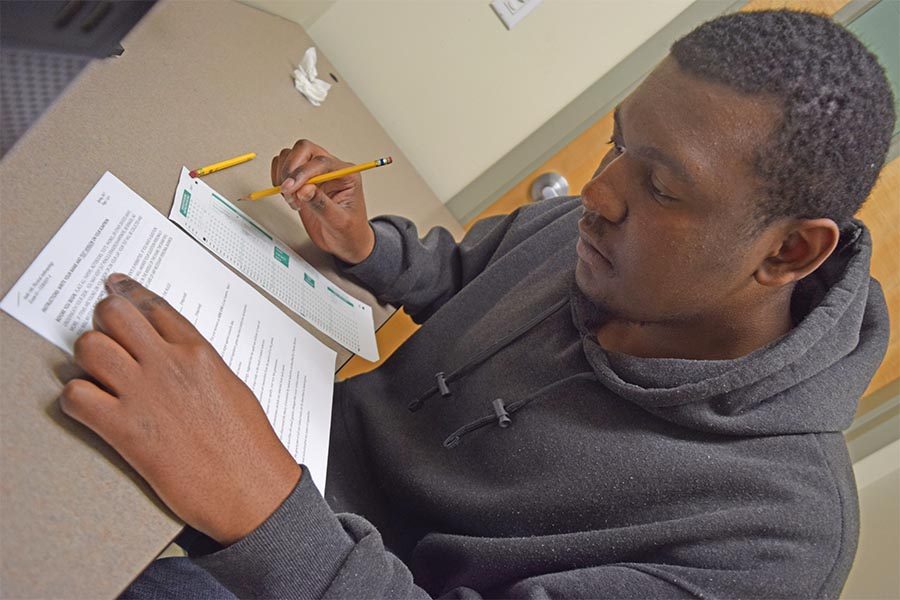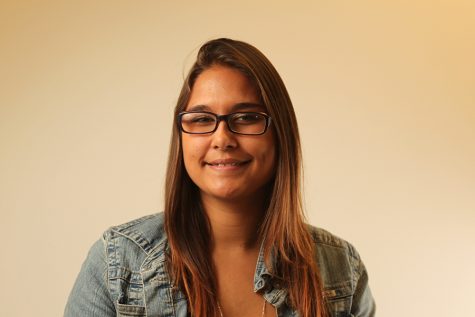Program offers accessibility
Office promotes success, access with DSPS programs
DEnis Perez / The Advocate Student Marquis Brown uses a room in the Student Services Center to take a test as part of a service provided by the Disabled Student Program Service on March 2.
Mar 14, 2017
The Disabled Students Program and Services Office at Contra Costa College is committed to helping students with learning, physical or psychological disabilities by working to increase their access to educational programs and opportunities.
“If I need something for class they will help translate it for me in audio form because I’m blind and it makes it easier on me to listen to my work,” DSPS student and communications major Christopher Lucero said.
Lucero has worked with DSPS for two semesters and sees himself continuing with the program as long as he’s a CCC student.
According to California Community College Chancellor’s Office online database, DataMart, as of fall 2016 there are 373 students with disabilities enrolled at CCC. Some 117 of those students have “learning disabilities” and 32 have issues with mobility.
To access the available services, students need to apply by completing the following steps. Students must first fill out a DSPS intake packet and provide verification of their disability, (if available) followed by a meeting with a counselor or LD (learning disability) specialist.
The DSPS Office, located in SSC-109, is open Monday through Thursday from 8 a.m. to 4:30 p.m. and on Fridays from 8 a.m. to 1 p.m.
“We do not have anything new planned for the program,” DSPS instructional assistant Richard Stollings said. “We offer students instructional services and accommodation services.”
Priority registration, equipment loans, referral to support services, testing accommodations, adaptive computer technology, mobility assistance, wireless microphone transmitter, sign language interpreter, academic and vocational counseling are all services available through the DSPS Office.
According to the DSPS’ online page at www.contracosta.edu, the program helps students with mobility impairments, visual impairments, hearing impairments, learning disabilities, acquired brain injury developmentally delayed learner, psychological disability and other impairments.
Services are tailored to the specific needs of the individual and are arranged following the student’s consultation with a counselor.
“I definitely think if I were a part of the DSPS program that the services would help me. It’s really hard for me to stand in long lines and priority registration would really help me out,” communications major Alexis Bennett said.
“I believe there should be more signs and information around campus about DSPS,” Bennett said.
She said with the expansion of the campus it has been difficult to get around and the mobility assistance offered by police aides has been a problem for her.
“I’ve been having a lot of trouble getting around lately. The other day there was only one student aide worker on duty so I had to walk to my class and it was on the other side of the campus,” she said. “It was really hard on me.”
Bennett said students ask her if she needs help and that it is always nice to know that people do care about a person with a disability.
“I also wish that the seats in the new General Education Building accommodated everyone. I can’t sit in those chairs,” Bennett said.
DSPS students are welcome to join the Ability Club, which offers leadership opportunities and social events for students with a disability.



